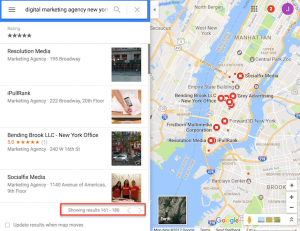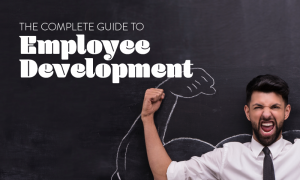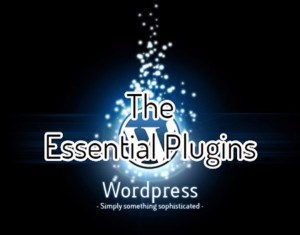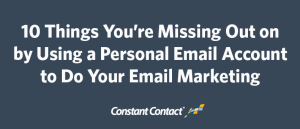By Amanda Augustine
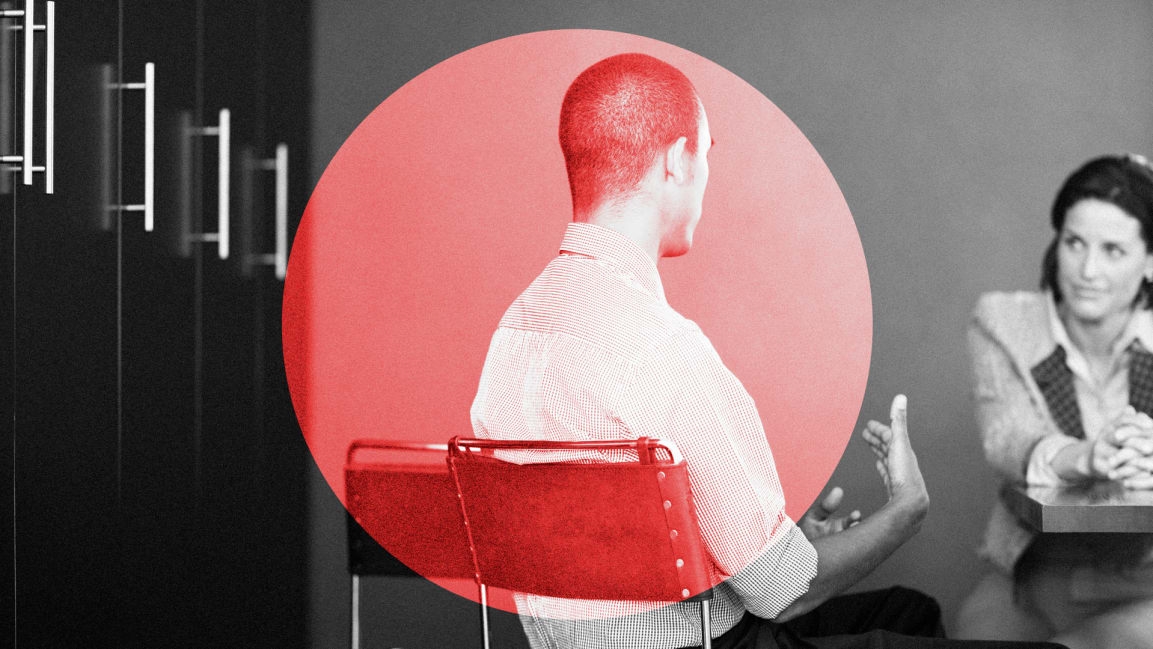
It’s fair to say that most people aren’t typically asked to describe themselves to others on a regular basis. However, when it comes to landing the right job, interviewers expect you to confidently talk about your abilities and the value you could bring to their team.
Whether your interviewer directly asks you to “tell me about yourself” or chooses a different line of questioning such as, “How would your colleagues describe you?” or, “What are your greatest strengths?” the end goal is the same: to get a better sense of who you are and determine if you’ll be a good fit for the position.
While it can be uncomfortable to share your best qualities to relative strangers during the interview process, it’s important that you’re prepared to speak about yourself with confidence. After all, if you’re not confident in your abilities, why should a prospective employer be confident in hiring you?
However, there’s a very fine line between confidence and arrogance during the interview process. The difference comes down to how you communicate—and the words you choose to describe yourself. The last thing you want to do is come across as conceited or inauthentic because you resorted to describing yourself with the same overused buzzwords experts warn you to remove when writing your résumé.
Below are some of the most commonly overused words candidates use to describe themselves during the interview process—and what you can say instead to communicate your value and win over your interviewers.
Hardworking
Let’s be honest: Is anyone ever going to say they’re unmotivated during a job interview? Of course not. While possessing this quality is certainly appealing to employers, simply making this statement won’t prove that it’s true. Instead of telling your interviewers that you’re a hard worker, convince them of your work ethic by showing them your capabilities.
Pull out your professional “brag book” and look for recent examples, such as a major contribution you’ve made, goal you’ve met or exceeded, or accomplishment you’ve achieved, that illustrates how your hard work has paid off for your former employers. Then, be prepared to use the STAR method to summarize these professional wins during your next interview.
Team player
Take a moment to consider what being a team player really means. It’s more than simply getting along with others and being able to work in a group. A true team player is able to compromise when necessary, show respect for others, listen to the needs of their team members, and work together to come up with solutions or meet goals.
There are many ways you can show you’re a team player throughout the interview process. If you’re describing an accomplishment that was a group effort, don’t take full credit for the win. While your contribution may have been essential to the success of the project, give credit where credit is due. For example, if you came up with a great idea to solve a company issue, be sure to mention how you worked with the team to implement your recommendation or how you sought feedback from other colleagues before moving forward with your idea. Just by remembering to use the pronoun “we” instead of “I,” where appropriate, can demonstrate that you have a team player mentality. In addition, use your active listening skills to ensure you fully understand what the interviewer is asking so you can deliver a succinct response that clearly answers the question at hand.
Dynamic and passionate
If you want to describe yourself as being dynamic or passionate in an interview, follow the golden rule: Show, don’t tell. If you show up to an interview full of positive energy and excited to share your ideas, there will be no need to tell the interviewer that you’re passionate about your work—your attitude and behavior will speak for themselves.
To ensure you’re able to express both your dynamic personality and passion for the job opportunity during the interview, focus on your interview preparation. Do your research on the company and the position so you feel confident entering the interview room and explaining what excites you about this opportunity.
It’s also important to gauge whether you need to boost your energy level or release some nervous energy in the hours leading up to your interview to bring your best self to the interview room. Creating a pre-interview routine can be very helpful. This could involve meditating, jamming out to your favorite music, drinking a caffeinated beverage, or eating certain foods that contain natural beta-blockers to reduce anxiety or contain complex carbohydrates and protein to increase energy levels.
Adaptable and flexible
It’s true that employers, now more than ever before, are interested in hiring professionals who are willing and able to adapt to new challenges in the workplace. In fact, when TopResume asked hiring professionals to identify which skills have taken on greater importance since the pandemic, “adaptability and flexibility” surfaced as the most-prized trait.
Instead of stating, “I’m adaptable,” let your interviewers know you’re equipped to handle whatever workplace scenarios may come your way by explaining how you thought on your feet and brought creative solutions to the table throughout the pandemic. For example, perhaps you had to figure out a way to virtually onboard new employees, scramble to modify your company’s services in a virtual environment, or pivot your team goals mid-quarter while still meeting them. By providing concrete examples of how you successfully met challenges head-on, potential employers will appreciate the flexibility and adaptability you could bring to their team.
Creative and innovative
While describing yourself as “creative” or “innovative” can come across as cheesy at best and obnoxious at worst, the fact of the matter is that these skills are important requirements for certain roles. In order to express your creativity and innovative spirit in terms an employer will value, consider how your creativity or innovation has factored into your previous roles.
If you’re pursuing a creative role—e.g., artist, designer, product manager, writer, advertiser, etc.—make sure your online portfolio or blog is updated with your latest projects and that its link is listed at the top of your résumé and on your LinkedIn profile. Be ready to talk about what you enjoy about the creative process, how you’ve leveraged your creativity in your latest projects, and what was the outcome of those projects.
If the type of role you’re seeking requires creative problem-solving skills (another top priority for many employers these days), be prepared to explain why you like tackling new challenges and share recent examples of when you had to think outside of the box in order to solve a problem, learn a skill, or meet a goal that benefited the company.
While stuffing your résumé and LinkedIn profile with generic buzzwords can be off-putting to potential employers, it’s far worse when you recite them during an interview. Instead, practice describing your skills with terms a potential hiring manager can appreciate with anecdotes that demonstrate your qualifications and value.
Amanda Augustine (@JobSearchAmanda) is the resident career expert for Talent Inc.’s suite of brands: TopResume, TopInterview, Resume.io, and TopCV. With more than 15 years of experience in the recruiting and career-advice industry, she is a certified professional career coach (CPCC) and résumé writer (CPRW), helping professionals improve their careers and find the right job sooner.
Fast Company , Read Full Story
(63)
Report Post
